Is Aromatherapy Good for Hair Growth
Are you looking for natural ways to promote hair growth? Aromatherapy might just be the solution you’ve been searching for.
In this article, we’ll explore what aromatherapy is, how it works, and the benefits it can offer, including reducing stress, improving sleep, boosting mood, and relieving pain.
We’ll also discuss whether aromatherapy can help with hair growth, what essential oils are beneficial, how to use aromatherapy for hair growth, potential risks and side effects, and other natural methods to promote hair growth.
If you’re curious about harnessing the power of essential oils for healthier hair, read on to learn more.
Key Takeaways:
What is Aromatherapy?
Aromatherapy is a holistic healing treatment that uses natural plant extracts, known as essential oils, to promote health and well-being. These essential oils are derived from various parts of plants, including flowers, leaves, and roots, and are believed to have therapeutic properties.
Historically, aromatherapy dates back thousands of years to ancient civilizations such as Egypt, China, and India, where these aromatic oils were used for medicinal and spiritual purposes. The principles of aromatherapy revolve around the idea that the inhalation or topical application of these essential oils can stimulate the limbic system, the part of the brain that plays a role in emotions, behavior, and memory.
How Does Aromatherapy Work?
Aromatherapy works by stimulating the smell receptors in the nose, which then send messages through the nervous system to the limbic system – the part of the brain that controls emotions. The use of essential oils in aromatherapy can influence physical, emotional, and mental health.
When inhaled, these essential oils trigger different responses in the body. For instance, lavender oil is known for its calming properties, helping to reduce stress and anxiety. On the other hand, peppermint oil is invigorating and can boost energy levels.
The molecules in essential oils are small enough to be absorbed through the skin, entering the bloodstream and affecting various bodily functions. This dual absorption method enhances the overall effectiveness of aromatherapy in promoting relaxation, improving mood, and even alleviating certain physical symptoms.
What Are the Benefits of Aromatherapy?
The benefits of aromatherapy are vast and include reducing stress and anxiety, improving sleep quality, boosting mood and energy, and relieving pain and inflammation. Different essential oils such as lavender oil, peppermint oil, and rosemary oil offer unique benefits to enhance overall well-being.
Lavender oil is known for its calming properties, making it a popular choice for relaxation and stress relief. It can also aid in promoting better sleep by easing insomnia symptoms and reducing anxiety levels.
Peppermint oil, on the other hand, is invigorating and can help increase alertness and mental clarity, making it ideal for boosting energy and focus.
Rosemary oil is often used to alleviate muscle aches and improve circulation, providing relief from inflammation and pain.
Reduces Stress and Anxiety
Aromatherapy, especially when using lavender oil, has been shown to reduce stress and anxiety levels in individuals. The calming scent of lavender can promote relaxation and a sense of well-being.
Studies have demonstrated that the use of lavender oil in aromatherapy can significantly lower cortisol levels, the hormone associated with stress, in the body. This natural remedy is believed to interact with the limbic system, the part of the brain responsible for emotions, which helps to induce a state of calmness and mental clarity.
Along with research findings, many individuals have reported their own experiences with lavender oil, crediting it with bringing about a profound sense of tranquility and peace. Whether used through massage, diffusers, or added to bath water, the therapeutic benefits of lavender oil in reducing stress are widely acknowledged.
Improves Sleep Quality
Peppermint oil in aromatherapy has been found to improve sleep quality by promoting relaxation and easing respiratory issues that may interfere with restful sleep. The invigorating scent of peppermint can create a soothing atmosphere conducive to better sleep.
Moreover,
peppermint oil possesses analgesic properties that help relieve muscle tension and headaches, further aiding in the body’s preparation for sleep. Its refreshing aroma not only calms the mind but also acts as a natural decongestant, allowing for unobstructed breathing during sleep. Research suggests that inhaling peppermint oil can reduce nighttime coughing and promote uninterrupted sleep cycles. Incorporating this essential oil into your bedtime routine through diffusers or pillows can be a holistic approach to addressing common sleep disorders and achieving a more restful night’s sleep.
Boosts Mood and Energy
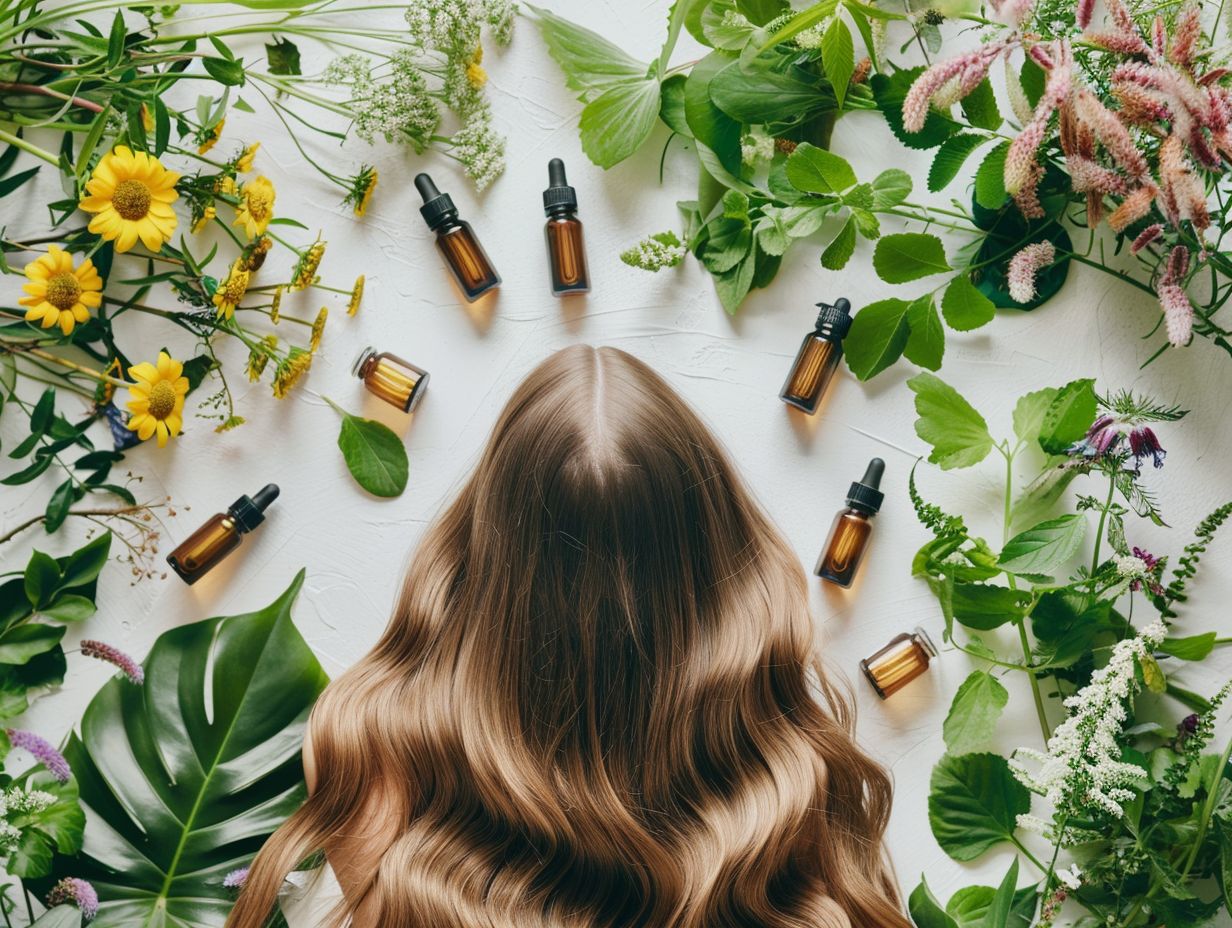
Rosemary oil used in aromatherapy is known for its mood-boosting and energy-enhancing properties. The refreshing aroma of rosemary can uplift the spirits and improve focus and mental clarity.
Studies have shown that inhaling rosemary oil can stimulate the brain, promoting cognitive function and memory retention. This makes it a popular choice for students or professionals needing mental alertness and concentration. The invigorating scent of rosemary can help alleviate feelings of stress and fatigue, creating a sense of calmness and relaxation. Its ability to balance emotions and reduce anxiety makes it a valuable tool in promoting overall emotional well-being.
Relieves Pain and Inflammation
Cedarwood oil is often used in aromatherapy to relieve pain and inflammation due to its anti-inflammatory and analgesic properties. The woody aroma of cedarwood can soothe sore muscles and joints.
Studies have shown that the essential oil of cedarwood contains compounds that have been found to reduce swelling and promote circulation, helping to alleviate discomfort associated with conditions such as arthritis and muscle strains. When used in massage oils or diffusers, cedarwood oil can also help to relax the mind and body, reducing overall tension and stress levels. This dual action of physical and mental relief makes cedarwood a popular choice for those seeking a natural way to manage pain and improve overall well-being.
Can Aromatherapy Help with Hair Growth?
Aromatherapy has gained popularity for its potential to promote hair growth through the use of essential oils such as peppermint oil, lavender oil, and rosemary oil. These oils are believed to stimulate hair follicles and improve scalp health.
Peppermint oil is known for its invigorating effect on the scalp, promoting blood circulation which in turn stimulates hair follicles to grow. Lavender oil, on the other hand, possesses antimicrobial properties that can help maintain a healthy scalp environment, reducing dandruff and itching that might inhibit hair growth.
Rosemary oil is often used to strengthen hair follicles, preventing premature hair loss and promoting thicker, healthier hair growth. When these essential oils are properly diluted and applied to the scalp through massage or added to hair products, they can work synergistically to support overall hair health.
What Essential Oils are Good for Hair Growth?
Essential oils like tea tree oil and ylang-ylang oil are beneficial for hair growth as they can improve scalp health, reduce dandruff, and nourish hair follicles. These oils possess antimicrobial properties that support a healthy environment for hair growth.
Tea tree oil is renowned for its antifungal and antibacterial properties, making it effective in combating scalp issues like dandruff and infections, thereby promoting healthier hair growth. It also has a stimulating effect on the blood circulation in the scalp, which can help improve nutrient delivery to hair follicles.
On the other hand, ylang-ylang oil is known for its moisturizing abilities, which can help prevent hair breakage and split ends, leading to overall stronger and longer hair.
How to Use Aromatherapy for Hair Growth?
Aromatherapy can be used for hair growth by diluting essential oils in carrier oils such as almond oil, jojoba oil, or coconut oil, and massaging the blend into the scalp. This method helps improve circulation, stimulate hair follicles, and enhance hair growth.
Carrier oils play a crucial role in this process, as they help to dilute the potent essential oils, making them safer for direct application to the skin.
Massage techniques, such as circular motions or gentle kneading, not only distribute the oils evenly but also help relax the scalp muscles, promoting better absorption of the oils.
The act of massaging the scalp can improve blood flow to the hair follicles, providing essential nutrients and oxygen for healthier hair growth.
Are There Any Risks or Side Effects of Using Aromatherapy for Hair Growth?
While aromatherapy is generally safe, there can be risks and side effects when using essential oils for hair growth. Some individuals may experience allergic reactions, skin irritation, or sensitivities to certain oils that could exacerbate scalp conditions.
It is crucial to perform a patch test before applying any essential oil directly to the scalp to check for adverse reactions. Allergic reactions can manifest as redness, itching, or even swelling, indicating the need to discontinue use immediately.
Individuals with sensitive skin should dilute essential oils with a carrier oil to prevent skin irritation. Properly storing essential oils in dark, glass containers away from direct sunlight can help maintain their potency and prevent degradation that may cause skin sensitivities.
What Precautions Should Be Taken?
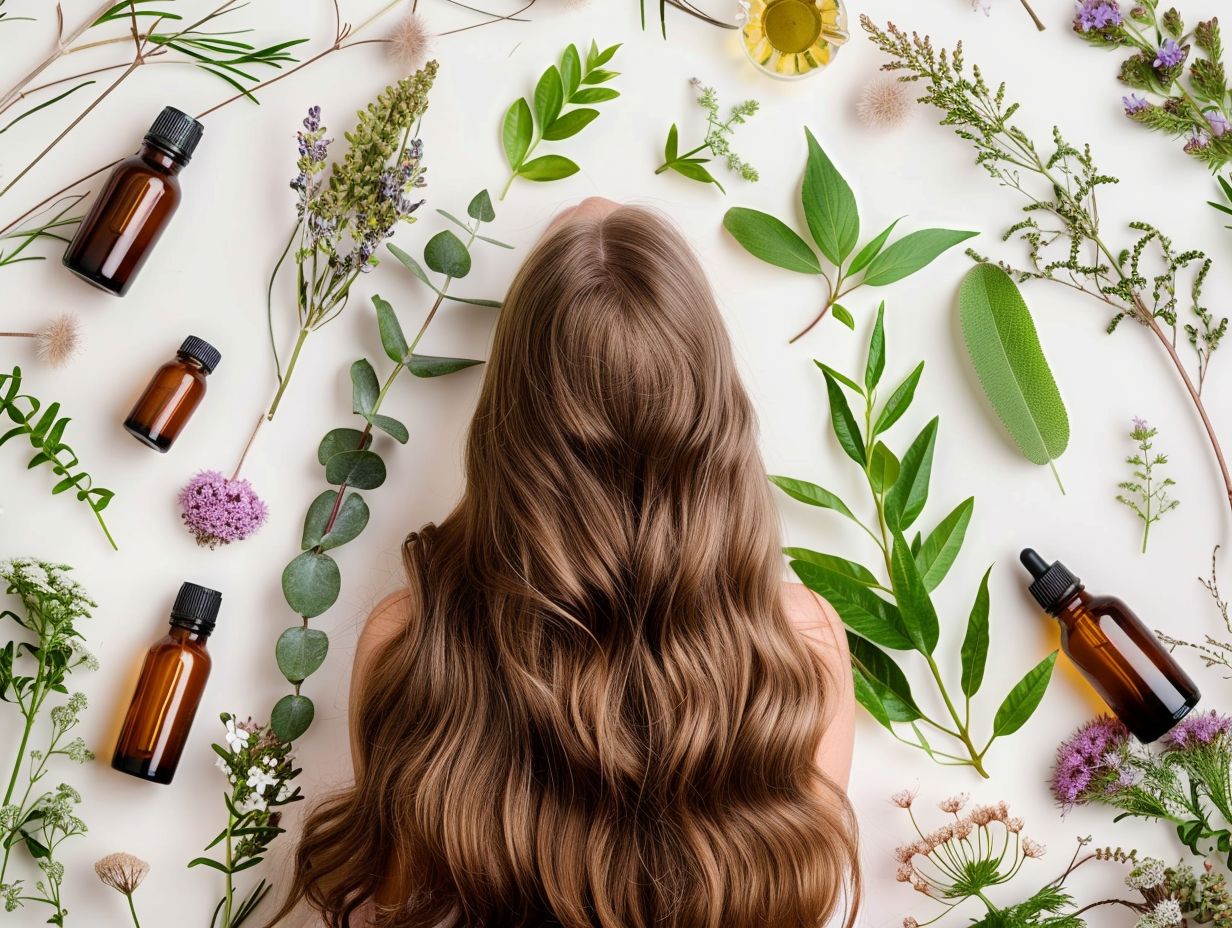
When diluting essential oils for hair care, it is recommended to use a carrier oil such as coconut oil or jojoba oil. A general guideline is to use about 1-3% of essential oil in your carrier oil, depending on the specific essential oil being used. Proper dilution not only ensures safety but also optimizes the effectiveness of the essential oils.
Safety guidelines dictate that pregnant women, children, and individuals with certain medical conditions should consult a healthcare professional before using aromatherapy products. Also, it is crucial to store essential oils in dark glass bottles away from sunlight and heat to maintain their potency.
Performing a patch test before applying essential oils directly to your scalp or hair is vital. Apply a small amount of the diluted oil mixture on your inner arm and wait for 24 hours to observe any allergic reactions or irritation.
What Other Natural Methods Can Help with Hair Growth?
Along with aromatherapy, other natural methods can aid in promoting hair growth, such as proper nutrition, scalp massage techniques, and the use of essential oil blends. These holistic approaches can complement aromatherapy for achieving healthy hair growth.
Nutrition plays a crucial role in the health of your hair. Foods rich in biotin, vitamin E, and omega-3 fatty acids support hair growth and strength. Incorporating spinach, nuts, avocados, and fish into your diet can significantly benefit your hair health.
Scalp massages can stimulate blood flow to the hair follicles, promoting growth. Gently massaging the scalp with essential oils like peppermint or rosemary can nourish the scalp and improve circulation.
Blending essential oils such as lavender, cedarwood, and ylang ylang can create a powerful concoction for enhancing hair growth. Mix a few drops with a carrier oil and massage into the scalp for optimal results.
Proper Nutrition
Proper nutrition plays a crucial role in supporting hair growth.
Including foods rich in essential nutrients like omega-3 fatty acids, vitamins, and minerals can help nourish hair follicles and improve hair texture. Omega-3 fatty acids, found in fish such as salmon and mackerel, promote scalp health and encourage hair growth.
Vitamins like biotin and Vitamin E are essential for maintaining healthy hair. These can be obtained from foods like eggs, nuts, and leafy greens. Minerals such as zinc and iron also play a vital role in preventing hair loss and promoting overall hair health.
In terms of oils, coconut oil and almond oil have been praised for their hair-strengthening properties. These oils can help moisturize the scalp, reduce dandruff, and improve hair shine and strength.
Scalp Massage
Scalp massage is an effective natural method to stimulate hair growth by enhancing blood circulation to the hair follicles.
Regular scalp massages can work wonders for your hair by improving nutrient delivery to the scalp, thereby ensuring the follicles get all the essential vitamins and minerals they need. This enhanced blood flow also helps in eliminating toxins and promoting a healthy environment for hair growth. Massaging the scalp not only relaxes you but also helps in reducing stress, a known factor that can contribute to hair loss.
By incorporating scalp massage into your regular hair care routine, you are not only pampering yourself but also taking proactive steps towards maintaining strong, healthy hair.
Essential Oil Blends
Creating custom essential oil blends can be a beneficial natural method for supporting hair growth. Combining oils like lavender, rosemary, and cedarwood in a carrier oil base can provide a nourishing treatment that promotes scalp health, strengthens hair follicles, and enhances hair texture.
These essential oils are known for their therapeutic properties – lavender soothes the scalp, rosemary stimulates hair growth, and cedarwood helps combat hair loss. When blended together, they create a powerful elixir to rejuvenate the hair and scalp.
For application, mix a few drops of each essential oil with a carrier oil like coconut or jojoba and massage the mixture into the scalp. Leave it on for at least an hour or overnight for maximum benefits.
Regular use of these oil blends can improve blood circulation in the scalp, reduce hair breakage, and add a healthy shine to your locks. They also have calming effects, relieving stress that can contribute to hair fall.
Frequently Asked Questions
Is Aromatherapy Good for Hair Growth?
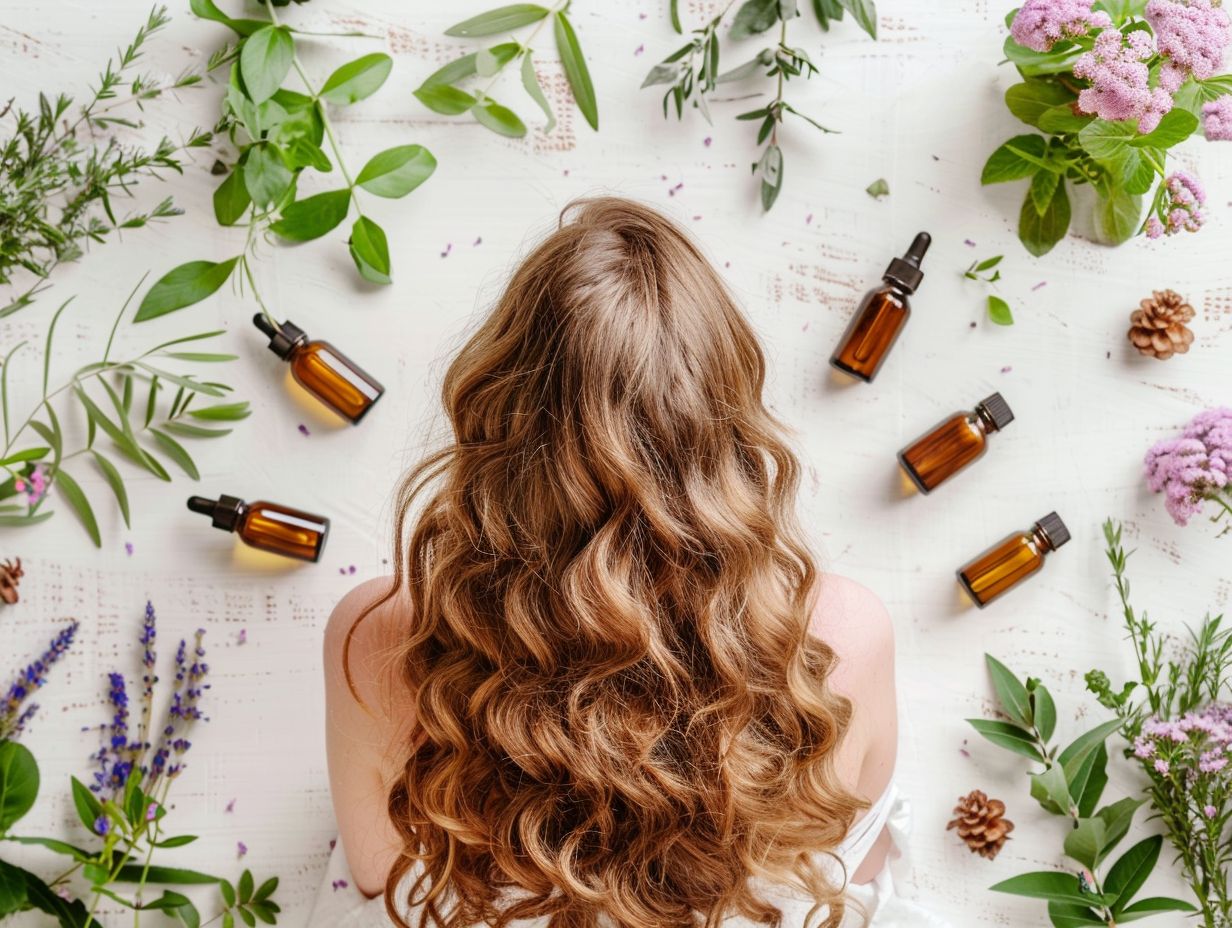
How does Aromatherapy help with Hair Growth?
Aromatherapy stimulates the hair follicles by increasing blood flow to the scalp, which helps to deliver essential nutrients and oxygen to the hair follicles. This promotes healthy hair growth.
What essential oils are best for promoting hair growth?
Some of the best essential oils for promoting hair growth include lavender, rosemary, peppermint, and cedarwood. These oils have been shown to improve blood circulation and nourish the hair follicles.
Can Aromatherapy be used for all hair types?
Yes, aromatherapy can be beneficial for all hair types, including dry, oily, and damaged hair. The essential oils used in aromatherapy can be customized to suit different hair types and address specific hair concerns.
Are there any risks or side effects associated with using Aromatherapy for hair growth?
Aromatherapy is generally safe when used properly. However, some essential oils may cause skin irritation or allergic reactions in some individuals. It is important to dilute essential oils properly and do a patch test before using them on your scalp.
How often should I use Aromatherapy for hair growth?
The frequency of using aromatherapy for hair growth may vary depending on individual needs and hair type. It is generally recommended to use aromatherapy 2-3 times a week for best results. However, it is important to consult a professional aromatherapist for personalized recommendations.

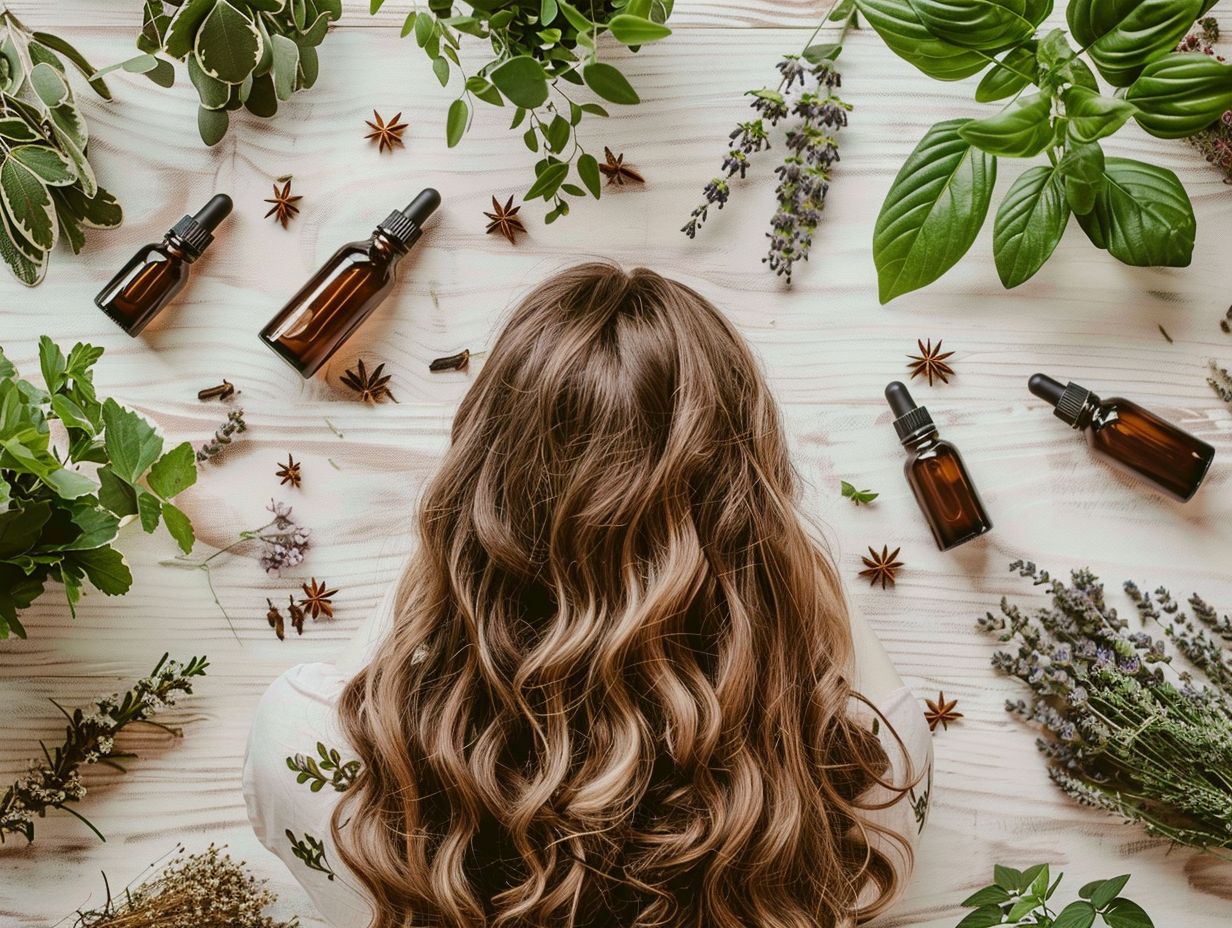
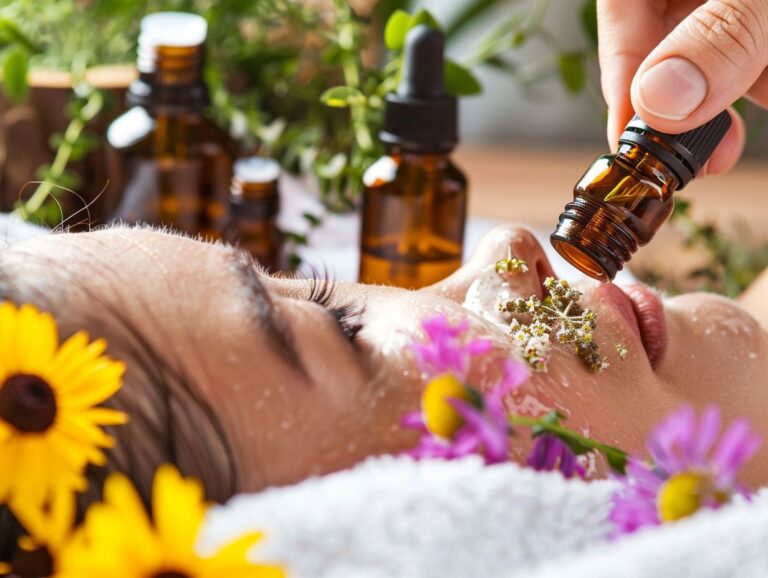
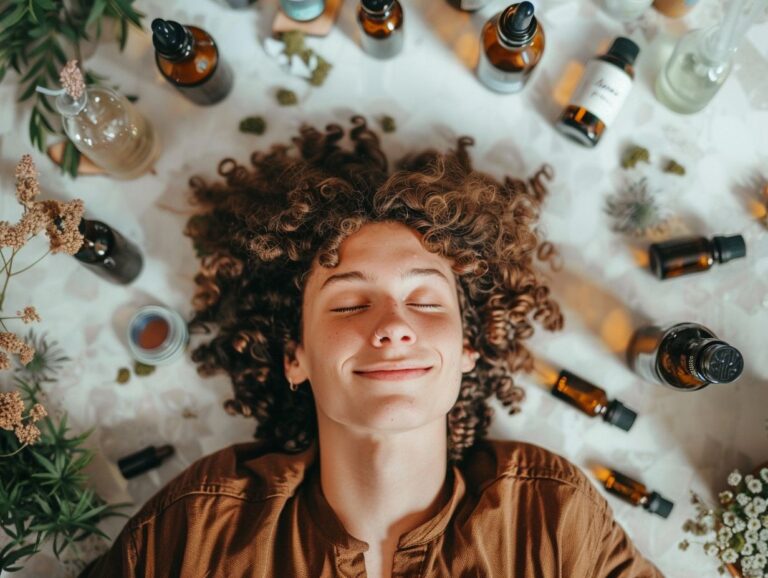

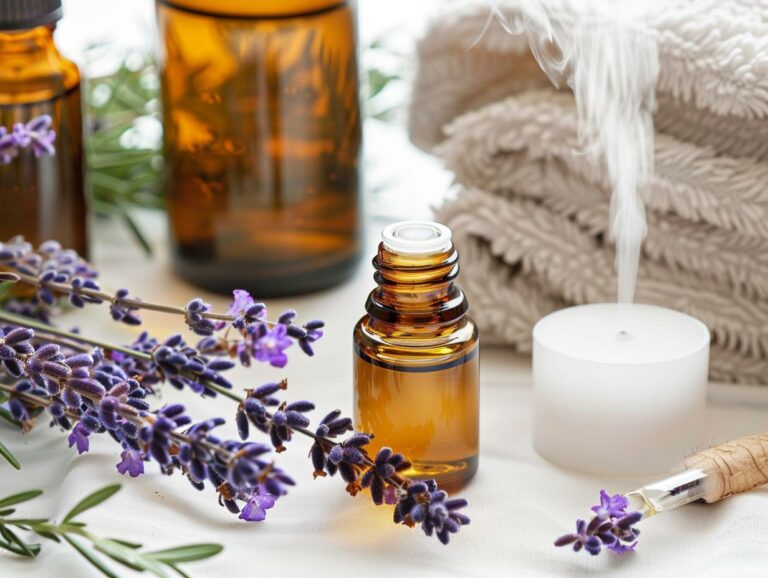

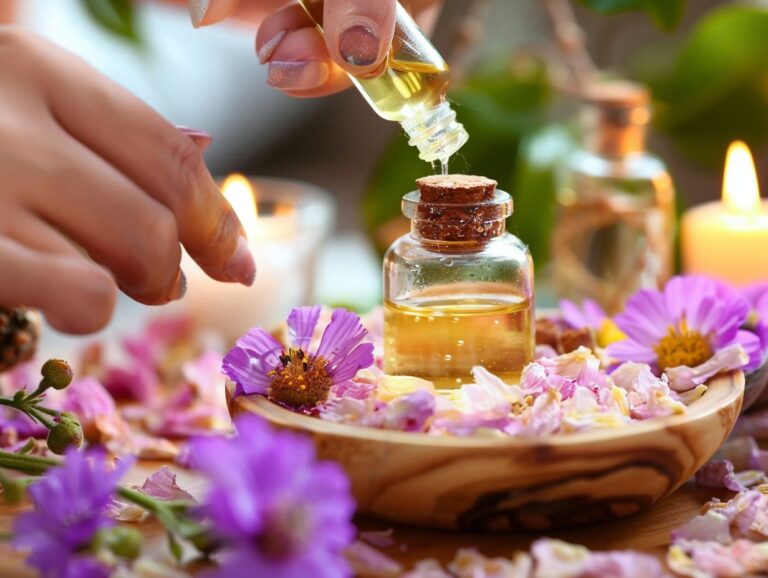
2 Comments